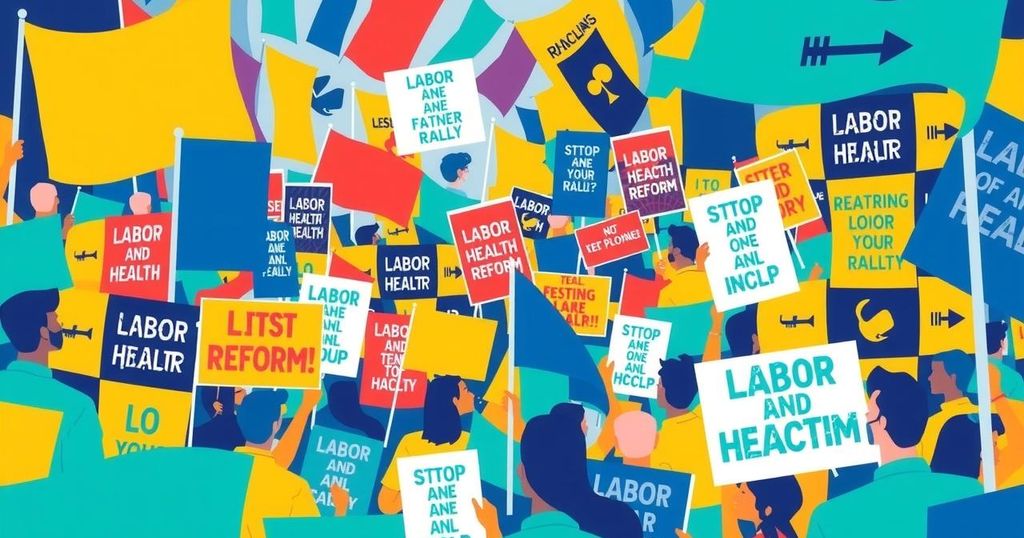President Gustavo Petro Calls for Special Election on Labor and Health Reforms in Colombia
President Gustavo Petro urges Colombians to support a special election for health and labor reforms, facing obstruction from opposition parties. In a rally, he called for a national consultation to empower voters to approve stalled legislation. Although facing challenges with political support and skepticism about voter turnout, Petro aims to bolster public backing ahead of next year’s congressional elections.
In a recent rally in Bogota, President Gustavo Petro called on his supporters to “rebel” against centrist and right-wing politicians who have obstructed his proposed reforms in labor laws and the health system. As Colombia gears up for upcoming elections, Petro announced intentions to organize a special election, allowing voters to approve or reject key health and labor legislation that has been stalled in Congress due to a lack of consensus among political factions.
During his impassioned speech, Petro stated, “The people have made lots of sacrifices to be governed now by monarchs and tyrants,” criticizing opposition politicians for their reluctance to support the reforms. As Colombia’s first leftist president, Petro faces significant challenges in advancing legislation, as his political movement, the Historical Pact, holds only a fifth of the seats in the Senate.
To bolster support for the rally, Petro granted a day off to national government workers, encouraging their participation in a protest at Bolivar Square. Many demonstrators attended, where Petra continued to denounce Congress members for prioritizing corporate interests over the welfare of citizens, urging voters to “punish” those who engage in “corruption and greed.”
The proposed special election, known as a popular consultation under Colombian law, requires Senate approval and mandates that approximately one-third of registered voters participate for the results to be valid. Political analysts suggest that mobilizing enough voter turnout may prove difficult for Petro, who garnered 11.2 million votes in his 2022 election.
Despite skepticism, some analysts believe the special election may energize Petro’s base before the congressional elections in March. The administration stands to benefit from campaigning for its reforms using public funds, leading critics to argue that the government seeks to deflect responsibility for its inability to reach legislative agreements in Congress.
Petro’s health reform seeks to eliminate insurance companies from mandatory social security payments and establish a government agency to manage these funds. Legislators have repeatedly rejected this proposal, claiming it grants excessive power to bureaucrats and underestimates the government’s ability to manage healthcare for millions.
Additionally, Petro’s labor reform aims to raise wages for night workers and limit short-term employment contracts. However, these proposals faced setbacks in legislative votes, with opponents claiming they could increase unemployment due to higher costs for businesses. Critics also point out that over 55% of Colombians work informally without contracts, arguing that Petro’s proposals offer limited incentives for companies to employ these individuals, indicating potential pitfalls in the administration’s approach to labor reform.
In conclusion, President Gustavo Petro’s call for a special election reflects his administration’s ongoing struggle to implement significant labor and health reforms in Colombia. Faced with extensive opposition and skepticism about voter turnout, Petro aims to galvanize public support while shifting accountability away from governmental difficulties in Congress. The success of these proposed reforms will depend on the outcomes of the special election and the government’s ability to navigate legislative challenges effectively.
Original Source: www.mymotherlode.com




Post Comment